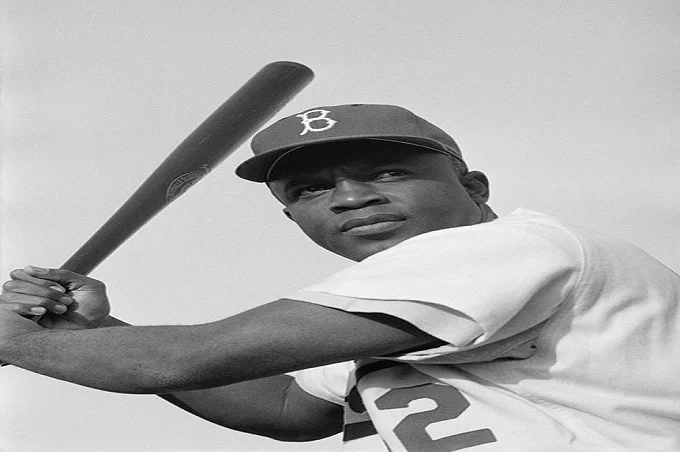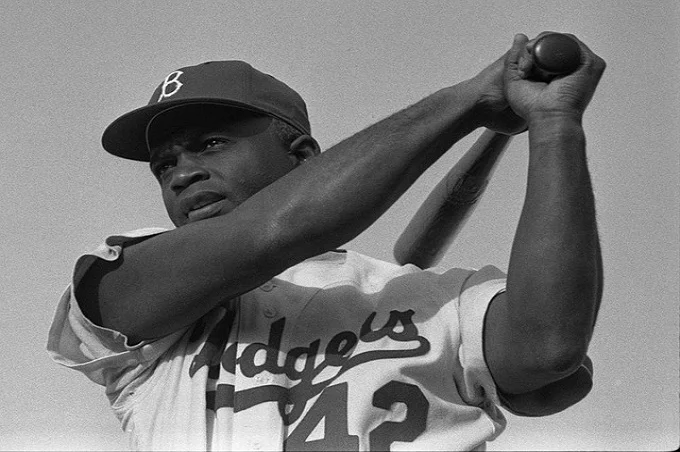Athletes’ stories are amazing stories of human conflict with a wide universe of misunderstanding. And no matter what country an outstanding athlete hails from, the main theme of his journey is always the same: a tenacious and determined fight against the odds. If anything or someone is preventing you from doing what you love, you must address it immediately. After all, only such people make history because legends about them are worth retelling later.
Today, we’ll discuss the first black baseball player in the major leagues in the United States. There are few instances of effective pushback to the amount of Caveman racism he met. Some of the items were broken, while others were not. Jackie was the first person to rise to the challenge.
The journey to a breakout performance

The world of baseball was forever transformed on April 15, 1947. On this day, the first African American in the professional baseball league made his debut, changing the method of player selection and the game itself. Liberals and human rights activists agree on one thing: this was a defining moment in the fight for their rights. In reality, a man who knew what he was up against and refused to give up was a serious male act.
He wanted to play baseball with everyone, especially since he was such a great player. Jackie Robinson took a stride toward popularity and recognition, but not without thorns and a wall of shame and misunderstanding in his way.
Jackie was a multi-sport athlete who excelled in basketball, American football, baseball, and athletics from the time he was in elementary school. His physique and physical statistics enabled him to be number one in these sports, but baseball was his true calling.
Following a period of study, the epic began with military service. Robinson climbed the ranks to the rank of officer, but he was court-martialed for refusing to obey a superior officer. And there was a lot of color in the disobedience. Because he was African American, Jackie had to give up his seat on the bus to the senior officer. He didn’t think it was important to give way to a healthy adult man; therefore, he didn’t. He was chastised as a result. This was not his first encounter with racism, but it was one of the most painful and unjust.
Despite, Jackie Robinson being offered a position with the Kansas City Monarchs baseball club after finishing his military duty, he could only play in the Negro League. Jackie was upset by the league’s inadequate tournament administration, even though his discipline and player quality were comparable to that of the big leagues. But there was no choice but to wait.
Jackie’s fateful encounter with Branch Rickey in 1946, when he sought qualified players for the Major Division club in the Negro League. But it didn’t guarantee the Brooklyn Dodgers would choose Robinson; he had just caught the attention of one of the top scouts of his day. Meanwhile, it was required to negotiate a deal with the Montreal Royals, the Dodgers’ minor-league farm team. Jackie Robinson was able to silence any efforts to insult him on the grounds of race because of his mastery of the game. In addition, he started the next season as a first baseman with the Dodgers.
To get the latest stories, install our app here
His talent could not but be admired. He was his generation’s Michael Jordan and Mike Tyson. Only hardened and ideological racists can despise these sportsmen, and Jackie Robinson was equal with them in terms of skill, with the exception of the sports and the historical period. Jackie had it much tougher since he grew up in a period when racism was the norm. Even the press didn’t hesitate to ridicule him because of his skin color, but he played brilliantly until everyone fell quiet.
Even members of their own squad had hatred for them in the past. Some competitors vowed to go on strike if a black player played for the Dodgers, refusing to attend the game. For you, this isn’t a juvenile “hoot.” People were ready to rip apart an African American who had regularly delivered triumph to his team, not in words but in acts. Jackie, on the other hand, was adamant. Later, Pee Wee Reese, an important player not just for the Dodgers but for the whole league, came out of favor, saying, “There are many reasons to despise a person, but skin color is not one of them.”
After baseball
The once-hated player established several records. He was the first in many areas, and he was strong and fast, so he demanded respect. Those who most publicly criticized him for his skin color then praised him for his sports achievements. After being inducted into the Hall of Fame a few years after his career ended, he opened the door for many others. As stubborn as he is, he overcomes social barriers. It wasn’t simply African Americans who were affected.
After retiring from professional athletics, Jackie Robinson pursued legal and legal pursuits, protecting the rights of his fellow compatriots.
